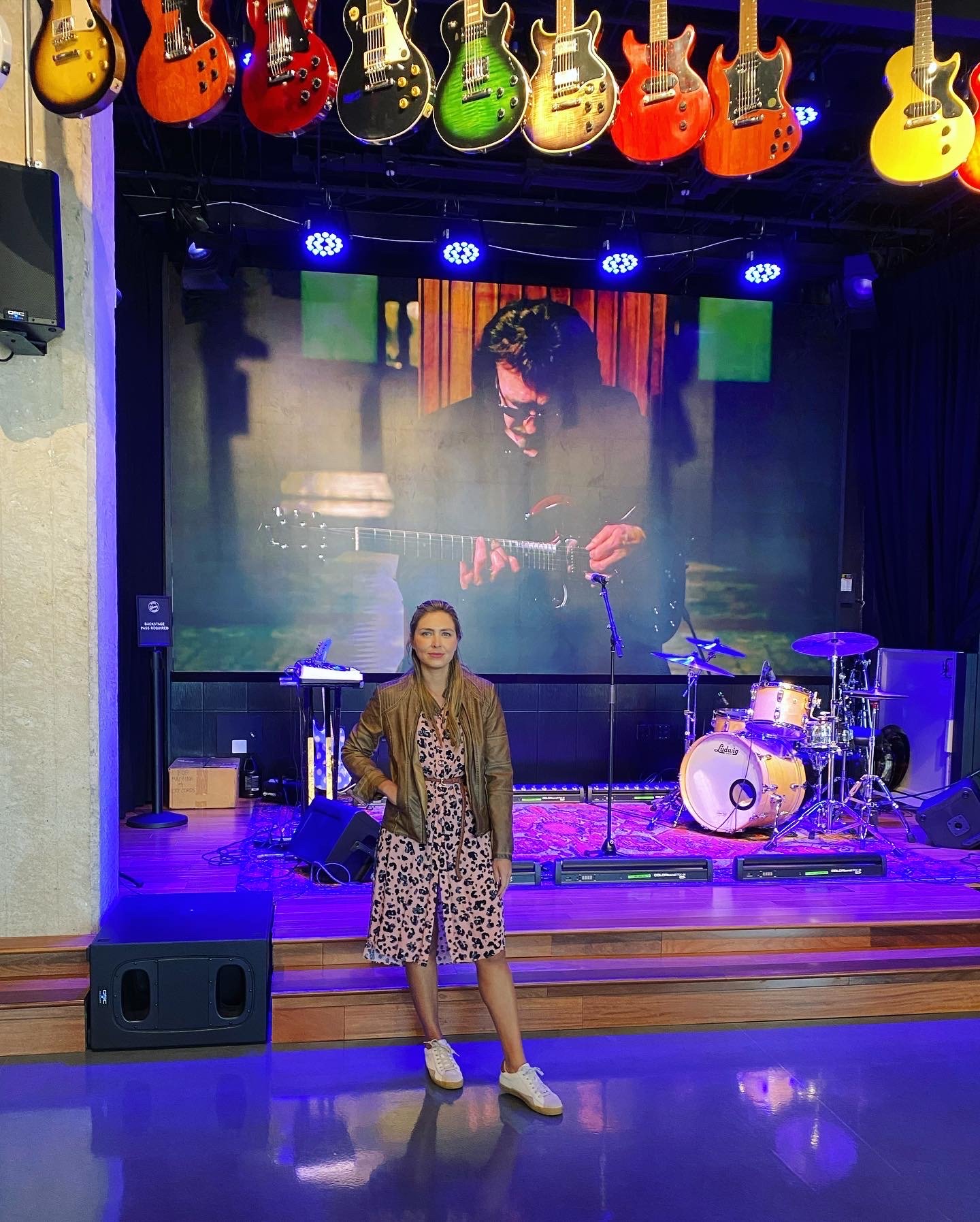Tips for surviving concerts
Visiting the Gibson (Guitar) Garage in Nashville, TN where they also host special live performances.
Noise-induced hearing loss is no joke.
It can happen to anyone even after a single exposure to loud music, which can be extremely harmful to your ears.
If you are exposed to loud noises for too long, the sensitive hair cells in the inner ear become damaged or even dead. These small hair cells are responsible for receiving and interpreting auditory signals as sounds, when damaged, your hearing ability can be severely compromised.
Exposure to loud noises can also cause temporary Tinnitus (ringing in the ear/s). This ringing is usually accompanied by a muffled sound, indicative of noise-induced hearing loss. These symptoms often go away within 24 to 48 hours of the concert/noise exposure. However, sometimes, it may take a week or longer. Unfortunately, hearing loss and tinnitus can become permanent in cases where exposure to loud noises is frequent.
A variety of factors determine how much damage is done to your hearing by exposure to sounds: How loud is the sound and how long were you exposed to it. For this reason, make sure to ALWAYS protect your ears at concerts, festivals, and other large gatherings.
my tips & recommendations for concerts:
Always carry earplugs with you: Make sure to carry custom-fit earplugs in your purse or wallet, or even better, buy a box of disposable ones and always have a pair handy.
When possible, try to attend outdoor concerts instead of closed venues.
At the concert, wear both earplugs and gradually take one out, preferably the one in your good/better hearing ear, to gauge how you adapt to the sound levels. If it is too much sound or stimulation for you, go back to wearing both earplugs. It takes time to determine the comfort level, which varies on every occasion.
Never remove the earplug on your bad ear–your non-hearing ear (with tinnitus and hyperacusis) to prevent any further hair cell damage
Stay far away from the stage and the speakers and amplifiers; this is extremely dangerous for your eardrums.
Choose a spot close to the exit door in case you need to exit the venue to take a breather.
Take breaks during the concert, as many as you need. Sit near the exits or the end of the seat rows so you quickly exit. If it is still too loud in the hallways/concession areas, go to the restroom and stay there as much as you need to
If you forget your earplugs at home, ask for a pair at the ticket stand, bar, concessions, or customer service counter; sometimes, they offer free disposable earplugs.
If no earplugs are available, you may use rolled tissue or toilet paper to block the sound as a last resource. But please insert them carefully and not too deep into the ear canal.
Drink lots of water and avoid alcohol before, during, and after the concert–your vestibular system will thank you. You want to be highly alert, so a dehydrated or alcohol-intoxicated brain makes everything extra difficult.
When you arrive home, relax with a soothing herbal tea and a warm shower or bath. This will calm your brain as you ease back to your "normal" volume.
Decompress before you go to bed: Listen to white noise, waterfalls, rain, or other soothing sounds or music to help you relax and fall asleep more easily.
If possible, use the next day to rest and recover. Go for a long walk at the beach, park, or forest to disconnect from technology and connect with nature.
Download mobile apps that rate venues based on sound (loudness) level so you can choose wisely where to sit. There are also great apps available that tell you the level of sound at a specific place (restaurant, mall, etc.) This is an excellent feature that helps you be aware of your surroundings.
Remember to always protect your ears to avoid any further ear damage. enjoy your concert responsibly :)
The Wallflowers concert in Fort Lauderdale, FL, 2022
With Jacob Dylan from The Wallflowers after the concert



